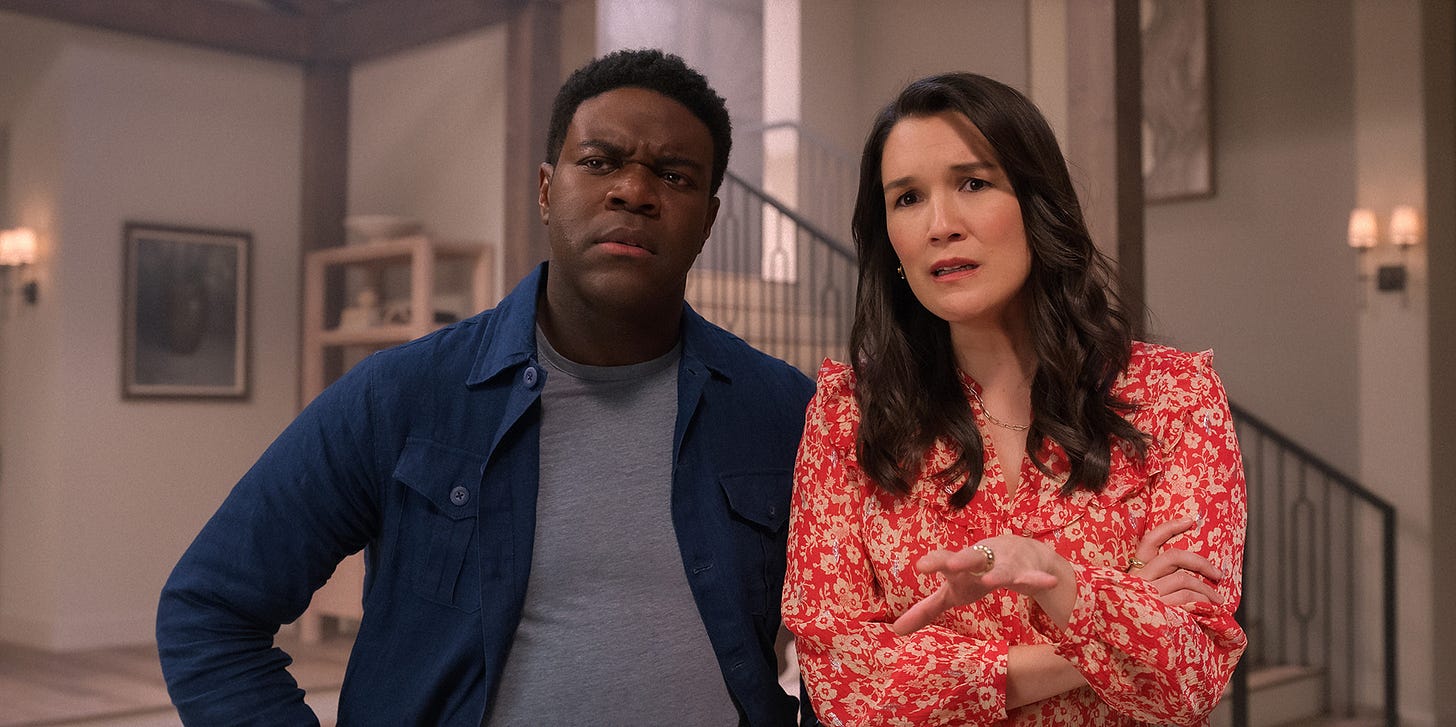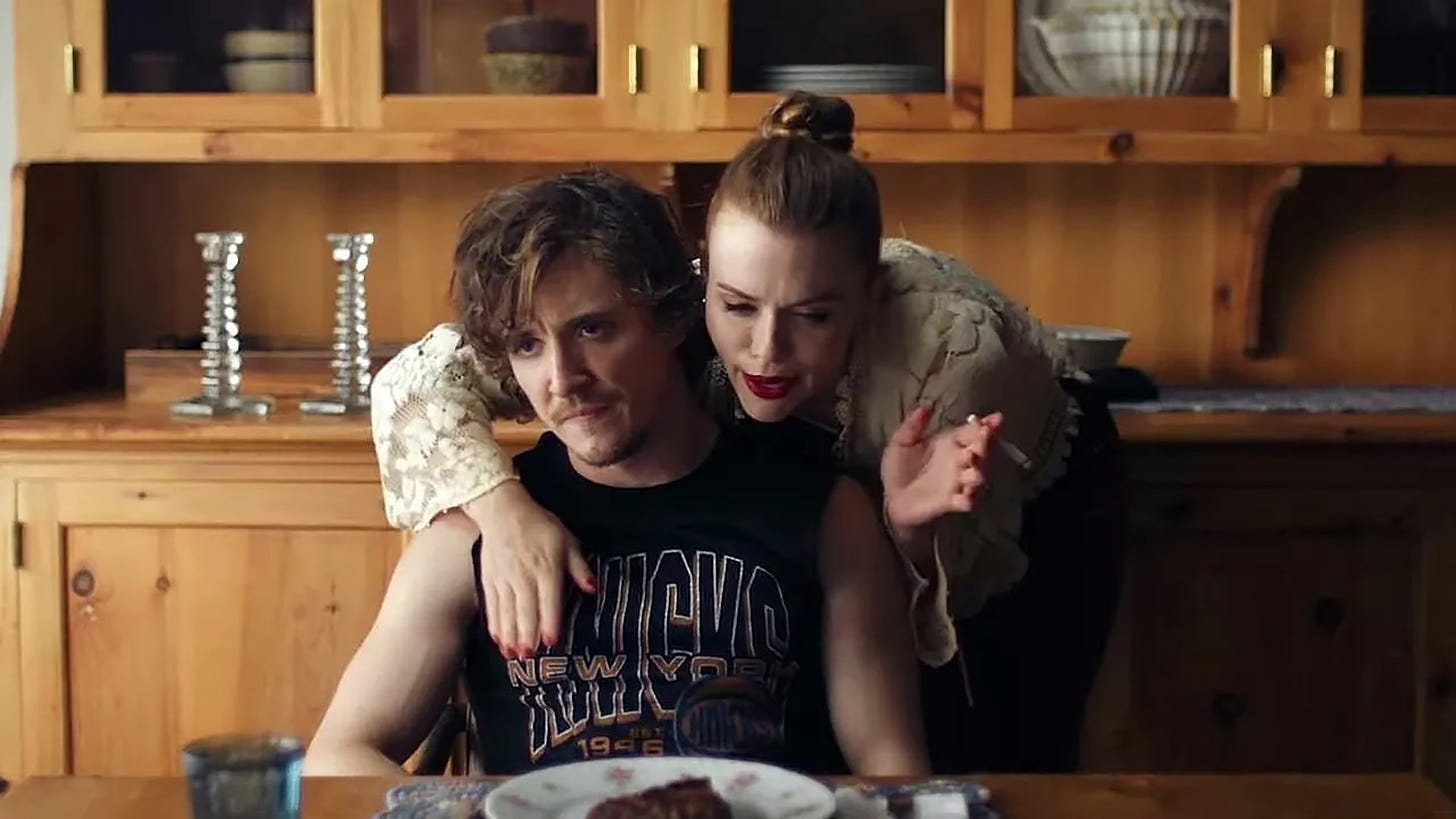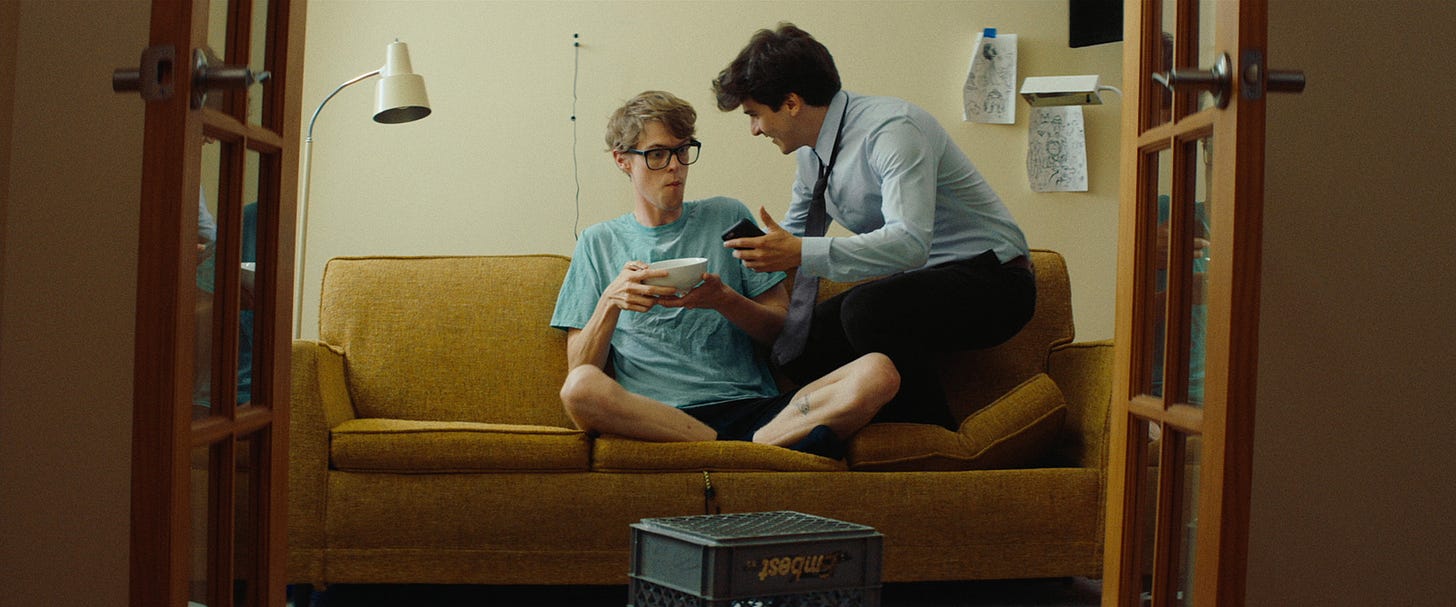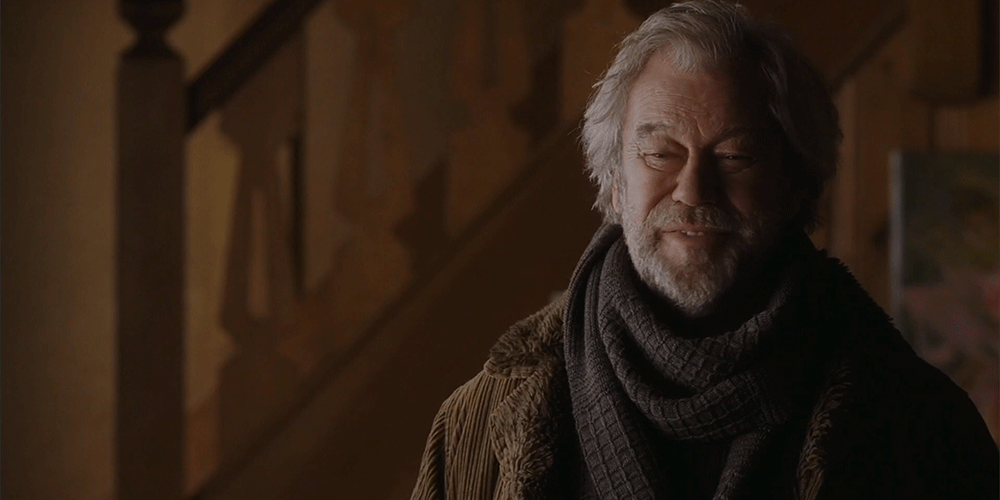With TIFF officially over (you can see my coverage here), it’s back to actually reading emails from publicists about theatrical releases again. Surprisingly, there weren’t many for this week or next week, but October 2nd is stacked with titles. It’s as though the indie studios all made sure to wait out September to try and maximize the number of eyeballs willing to take a look for review.
That’s important—especially if those reviewers can help bolster a Rotten Tomatoes score. And as we’ve seen from Vulture, the aggregate site has really put the industry in a stranglehold. Enough that one pr firm was apparently offering critics money to view their clients’ work in the hopes that the bribe might nudge them towards a “fresh” rating.
While I’ve never been offered compensation from a publicist, I have received emails from filmmakers telling me they “have some money set aside” to pass around if it helps get their movie jump the queue. That’s an instant delete. Because let’s face it—while the desperation to be noticed does say something about Hollywood making cinematic success more difficult without millions of marketing dollars behind you, offering cash only tells me you don’t think your own film can intrigue me on its own. So, why should I bother?
It’s a dog-eat-dog world out there, though. While that has only happened a few times, I do get screener pitches from moviemakers constantly. And I’ll admit I do not respond to them all. Because replying often leads to them saying “what about in a month for VOD?” The answer is still, “No.” Someone else will have to be your “one more to get a Rotten Tomatoes score.”
If I made a living doing this, it would be a different story because indies do deserve exposure. But this is my hobby and work has been insane all year. So, if I barely have time to watch what I want to watch, chances are I won’t be able to squeeze yours in. And if I even think I might not like it, I’d rather skip it than find out. Because life is too short, my free time is even shorter.
What I Watched:
THE AFTER PARTY: Season 2
(streaming on AppleTV+)
I really liked the first season of THE AFTERPARTY. It had a great cast, great concept, and great comedy. Making it the aftermath of a high school reunion wherein no one had really seen each other in years added so much too because it meant everything was on the table. Grudges. Jealousies. Or it could have just been a heat of the moment thing that had nothing to do with the past.
Announcing a second season was therefore a bit of a shock. This wasn’t a KNIVES OUT situation where the Poirot character was all you needed to keep going. Detective Danner (Tiffany Haddish) was objectively not the lead. That distinction went to Aniq (Sam Richardson). His integral help in solving the murder while also being a suspect made him the most important piece to the puzzle. Add a blossoming romance with Zoë (Zoe Chao) and you suddenly have three recurring roles to consider. So, the hoops to hope lightning might strike twice seemed infinite.
To creator Christopher Miller and his team’s credit, however, they do find a way to at least have a shot. By making said event Zoë’s sister’s (Poppy Liu’s Grace) wedding to a multi-millionaire crypto groom (Zach Woods’ Edgar), they both made it personal (this will be Aniq’s first time meeting the family) and supply a means for which Danner can arrive as a consultant before a real investigation commences. Because if Edgar is the victim, the last thing his wealthy mother (Elizabeth Perkins’ Isabel) would want is a reason for any skeletons to come out too soon.
Where things go off-the-rails isn’t necessarily the plot, but the gimmick. What worked so well before as genre-specific “mind movies” specifically built around each witness/suspect finds itself stretched so thin here that the concept becomes about aesthetic instead. Maybe it’s the amount of bad generative AI work populating social media these days, but making entire episodes “Wes Anderson” and “Alfred Hitchcock” proves quite lazy and obnoxious. You can homage twee and noir (which, funnily enough, they also do this season). You can’t simply mimic.
I did like the inclusion of a “video” episode, though—one where we get to see what “actually” happened as a means for extra comedy considering how much everyone embellishes or tones down their individual retellings of the weekend. It’s still from a specific perspective (Zoë’s father’s, as played by Ken Jeong, company’s social media manager, as played by Zack Calderon), but that layer of verisimilitude is a perfect contrast to the high-style writing and production design of the rest.
Richardson, Haddish, and Chao stay grounded to bring their characters back to life, but the rest tend to go super far into caricature. Whereas the reunion saw real people imagining fictitious versions of themselves, the wedding makes those fictitious personas into the real people and simply projects them onto different backgrounds each episode. They’re all way more over-the-top as a result. Paul Walter Hauser’s Travis plays this season’s Walt as a veritable cartoon. Anna Konkle’s Hannah is Margot Tenenbaum even before becoming Margot Tenenbaum.
I still had fun overall, though. I figured the culprit out early (both thanks to GLASS ONION and the fact that things are much more obvious this time around). And while it’s only one more episode than the previous season, it does feel a lot longer. I guess that happens when the entertainment is less gossipy and more familial. The histories here seem to be built solely to bolster the story rather than the characters—a noticeable difference that proves just how good Season One truly was.
- 6/10
MOTHER MAY I?
(now on VOD/Digital HD)
This one did not turn out like I expected. And that’s a huge compliment.
Following the death of his estranged mother, Emmett (Kyle Gallner) and his fiancé Anya (Holland Roden) travel upstate from NYC to claim her ashes and the house she’s willed him despite not having seen each other in decades. The goal is to clean things up, put the property on the market, and better situate themselves financially for getting a bigger place to start their own family. The longer Emmett stays within those walls, however, the more memories flood back.
In order to try quelling flashbacks that are obviously exacerbating his depression and anxiety, Anya suggests psychedelics. Neither could expect the mushrooms to turn a generally productive psycho-analysis game the couple often plays into a full-on psychotic break. It’s not just that Anya subsequently lives as Tracy for three days, though. She becomes Emmett’s mother. Cooking. Cleaning. Dancing. Swimming. Things that Anya never did and literally couldn’t do are effortlessly achieved. You can’t therefore blame him for questioning reality once she wakes up.
Laurence Vannicelli’s MOTHER, MAY I? initially seems to be solely about Emmett. His “mommy issues.” The repressed events of his childhood. The fear of repeating his mother’s parental mistakes. The script that Vannicelli and his partner Daisy Long developed unfolds via Emmett’s perspective with Anya being both a figure for support and provocation before all that changes around the halfway point after she reclaims consciousness from whatever fugue state possessed her. After three days of the impossible, Emmett is now the one who’s changed.
There’s a reason then that Roden is top-billed. Not only is she given the meatier, dual role of Anya and Tracy, but she also becomes the unwitting victim to an unexplainable phenomenon tied to a shared history of ghosts. She didn’t ask to lose herself to whatever power is inside that house and within Emmett’s soul. She did, however, ask to meet who Emmett used to be. He admits he remembered nothing of that life, believing he was abandoned as a baby when the truth reveals he lived there much longer. So, just as Tracy inhabits Anya, that child inhabits Emmett.
Rather than the usual supernatural jump scares, MOTHER, MAY I? leans into its psychological thriller underpinnings by letting Tracy (whether her presence is “real” or not) be a catalyst for Emmett and Anya to exorcise the demons that have taken hold of them. Both are keeping secrets—intentionally or not. Both are starting to wonder if their actions are less a product of desire and more about patching over a void within themselves that they’re too afraid to admit exists. The idea that they are a perfect pair quickly takes on new meaning as a result.
Roden and Gallner are very good in complex roles. At times so confident in their identities (regardless of which identity is in control) and at others a mess of insecurities and terror. Because the scariest part of what’s happening isn’t that they might lose themselves to that dread. It’s that they will recognize who it is they are becoming is who they actually need to be. These are broken souls pretending they’ve conquered their issues to find clarity together when the opposite is true. Their respective damage is what makes the other whole.
- 7/10

THE ORIGIN OF EVIL [L'origine du mal]
(now in limited release and on VOD)
Her girlfriend (Suzanne Clément) has two more years in jail. Her landlord’s sister is coming home and thus making it so she can no longer use the spare room. And working at an anchovy plant leaves her smelling of fish with little money to show for the trouble (we assume the opening credit sequence depicts a union organizer handing out flyers for a long fight to try winning more). So, after calling and failing to do so many times before, Stéphane Marson (Laure Calamy) decides to finally talk to the estranged father she’s never met.
From cluttered and crammed rooms of the working class, THE ORIGIN OF EVIL writer/director Sébastien Marnier takes us to an island mansion to show how the “other half” lives. That’s where Serge Dumontet (Jacques Weber) resides with wife (Dominique Blanc’s Louise), daughter (Doria Tillier’s George), granddaughter (Céleste Brunnquell’s Jeanne), and maid (Véronique Ruggia’s Agnès). And while the fact he had another child out of wedlock is hardly a secret, his first question of “How did you find me?” reveals he never tried giving Stéphane or her mother any kind of support.
While the script plays it straight as far as Stéphane’s emotions and trepidation, however, you can’t help realizing we’ve never heard anyone in her life call her by her name. That doesn’t mean she isn’t Stéphane Marson—a question George instantly wonders to herself. Just that Marnier is intentionally making it an unspoken mystery of the first hour of the film so we can try and figure these characters out first. After all, it’s not everyday someone falls to the ground in distress only to watch his family sit and continue drinking their tea.
The answer to Stéphane’s identity isn’t the only reveal made at the film’s midway point. Everyone’s masks start to slip. Are these women sabotaging Serge’s existence to take control of his money? Is Serge positioning Stéphane to be his knight in shining armor to stop them? Is he constructing a façade of “sweet, concerned, and tired old man” to do so? What about Louise admitting it would be in her self-interest to befriend Stéphane just in case the inheritance goes sideways? If all George cares about is the company, who will care for her?
The game twists as everyone plays everyone else to their advantage—mostly without any deception too. Once Serge’s temper starts peeking out and Stéphane’s desperation begins to hold her in volatile situations seemingly outside her control, decisions must get made on the fly. A little gossip can expose who has whose ear and who is ready to throw who into the fire, letting Stéphane know exactly who she can trust to be the person she needs them to be. Because she can’t actually trust any of them. How could she when they can’t (and don’t) trust her?
Calamy pivots on a dime when scenarios provide new opportunities to make or break an alliance. Blanc steals scenes with a compulsive spending habit that perfectly complements her vindictive side as far as paying her husband back for the suffering he’s caused. And Clément proves a crucial piece to the puzzle despite being on the outside. The deeper Stéphane gets with the Dumontet family, the more she pulls away from her imprisoned love. And the last thing Stéphane needs is a jealous violent offender escaping jail for a house call.
Marnier crafts a complex and entertaining yarn by injecting this stranger into Serge’s imperfect and cutthroat family. Half the time you wonder about Stéphane’s intentions and the other figuring out if the Dumontets are using her. It leads to an inevitable conclusion that grows darker and murkier than expected via the blur between reality and psychosis, but its familiar and obvious choices always seem fresh. Because whether or not Stéphane is who she says she is, none of this is about money. Unfortunately, a yearning to be loved comes at a much higher price.
- 7/10
QUICKSAND
(now on VOD/Digital HD)
It could have just been a road trip comedy about friendship, love, and hijinks with a Millennial flair and it would have been fine. Forgettable, but fine. Ray (Tanner Presswood) is going through a break-up. Paul (Simon Elias) is discovering his first post-college “Big Boy” job isn’t quite what he expected. And both have been tasked to guard a one-of-a-kind ring as co-Best Men in Josh’s wedding. It will therefore be a busy couple days of introspection, existential crisis, and responsibility. They might not be up to the task.
Instead of just seeing those threads through to their logical conclusions, however, QUICKSAND director JohnPaul Morris and his co-writers Jake Burgess and Broderick Steele throw a few curveballs. How will Ray and Paul react when forced to ask their parents for help? When Ray’s ex calls to try working things out? When they inevitably lose the ring? Enter manic episodes of uncertainty and over-the-top exaggerations of reality as we start to see that Ray and Paul have become each other’s crutches just as much as one another’s hero.
And rather than mine that reality deeper, Morris and company test it instead. That’s the difference between weighty dramas and absurd comedies. The latter has no need to flesh things out beyond how the dynamic impacts the characters’ decision-making skills within highly volatile situations. Who takes control when they witness a murder? When they’re kidnapped? When they must commit a crime themselves? The film takes a hard left turn towards chaos that’s very incongruous to the opening, but it’s no less entertaining as a result. Or memorable.
Just don’t get caught up in that more serious nature of the start. Unlike a HAROLD AND KUMAR, which embraces its irreverence from frame one, QUICKSAND tries making this adventure a case of “bad luck.” But since said luck is when the script is at its most fun, couldn’t the insanity have been the norm instead? Give me more nonsense like gun-toting Boomers joining shootouts rather than call the cops. More funny life parallels like how Ray and Paul aren’t that different from the two men trying to kill them.
Presswood and Elias are a fun duo and I like that they don’t need a falling out for the narrative to pivot or for a lesson to be learned. These guys are best friends. If they have any faults when it comes to the other, it’s that they care too much. Their relationship is wholesomely co-dependent in ways that ultimately send them spiraling through a nightmare with a lot more blood and dead bodies than anyone probably expected, but they always listen to and champion each other. If they go down, they’re doing it together.
The rest is noise regardless of how serious or dangerous it proves. This is a world where trauma doesn’t exist, so there’s no use sweating the small stuff like murder, car theft, or bodily injury. All that matters is finding the confidence to escape the doldrums and become the men they hope they are. Men who recognize love and are mature enough to deal with its complications. Men who can be relied upon to watch over things that mean the world to someone they care about. If people must die to figure those things out, so be it.
- 6/10
Cinematic F-Bombs:
This week saw AWAY FROM HER (2007), DOG (2022), NICK AND NORAH’S INFINITE PLAYLIST (2008), SPACE ODDITY (2023), and THE VALET (2022) added to the archive. Three f-bombs for Sarah Polley’s PG-13 debut proves that you can always fight to retain more than one. Another case where I wonder if too many other filmmakers just don’t bother. cinematicfbombs.com
New Releases This Week:
(Review links where applicable)
Opening Buffalo-area theaters 9/22/23 -
AFTER EVERYTHING at Regal Elmwood, Transit, Galleria & Quaker
ANTARJAL at Regal Elmwood
EXPEND4BLES at Dipson McKinley, Flix & Capitol; AMC Maple Ridge & Market Arcade; Regal Elmwood, Transit, Galleria & Quaker
IT LIVES INSIDE at Dipson Flix & Capitol; AMC Maple Ridge; Regal Elmwood, Transit, Galleria & Quaker
MY SAILOR, MY LOVE at North Park Theatre
“What really makes this slow and delicate look into the familial dynamics of flawed people so effective is Härö's ability to let their stubbornness stand. Sometimes things cannot be reconciled.” – Full thoughts at The Film Stage.
THE ORIGIN OF EVIL at Dipson Amherst
Thoughts are above.
SUKHEE at Regal Elmwood
Streaming from 9/22/23 -
CASSANDRO – Prime on 9/22
NO ONE WILL SAVE YOU – Hulu on 9/22
SAVIOR COMPLEX – Max on 9/26
STREET FLOW 2 – Netflix on 9/27
THE WONDERFUL STORY OF HENRY SUGAR – Netflix on 9/27
ZNACHOR – Netflix on 9/27
LOVE IS IN THE AIR – Netflix on 9/28
THE DARKNESS WITHIN LA LUZ DEL MUNDO – Netflix on 9/28
Now on VOD/Digital HD -
GOD’S COUNTRY SONG (9/19)
GOLDA (9/19)
“GOLDA isn't therefore a bad film. It's simply a forgettable one save its central performance (although even that shouldn't make much of an impact during awards season).” – Full thoughts at HHYS.
THE GOOD MOTHER (9/19)
“The film is an empty calorie page-turner. A primetime movie of the week that forgets its compelling true-life tragedies are worth more than being rendered as color for generic twists and turns.” – Full thoughts at HHYS.
NANDOR FODOR AND THE TALKING MONGOOSE (9/19)
QUICKSAND (9/19)
Thoughts are above.
SICK (9/19)
SLOTHERHOUSE (9/19)
TIL DEATH DO US PART (9/19)
BARBER (9/22)
LIFT (9/22)
NEITHER CONFIRM NOR DENY (9/22)









